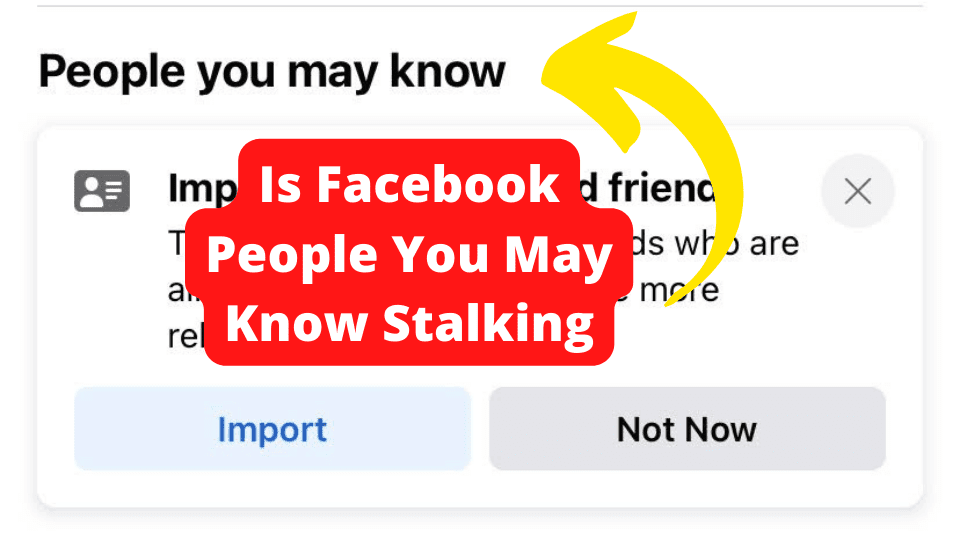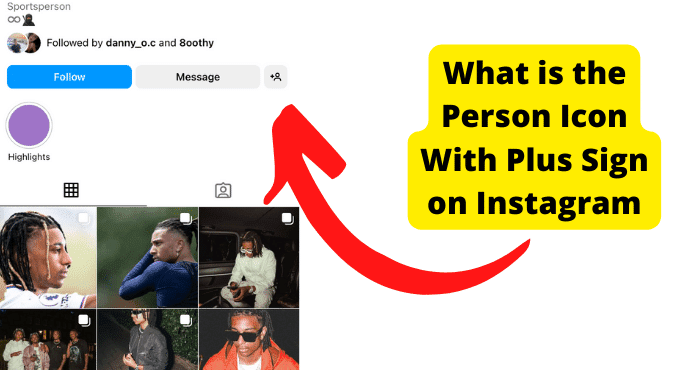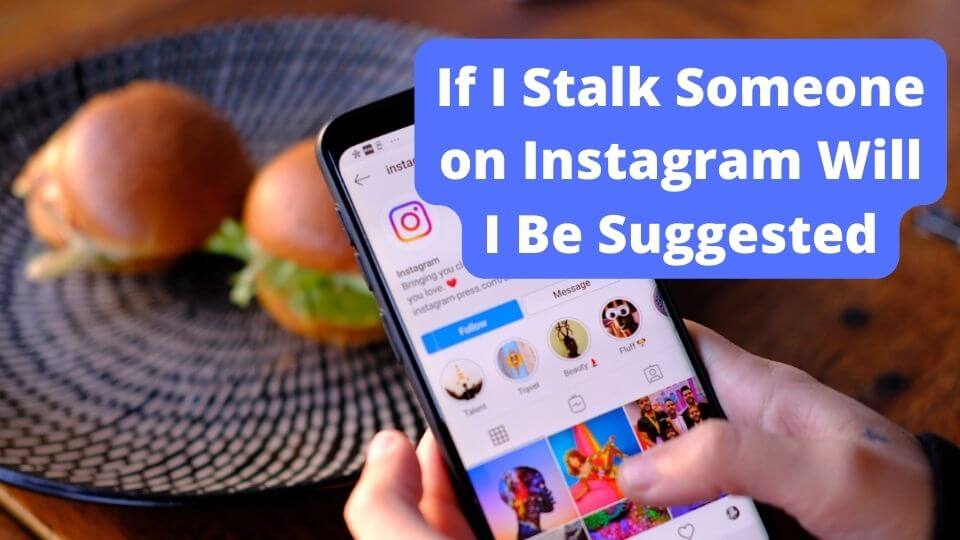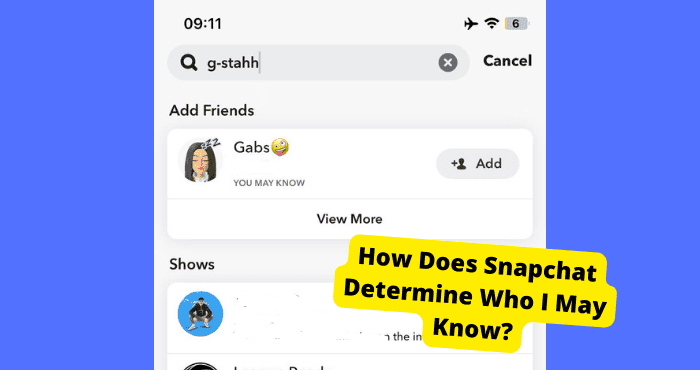Why Do Friend Suggestions Keep Reappearing on Facebook Suggest?
Key Takeaways
- Facebook’s “People You May Know” feature suggests friends based on data from mutual connections, shared interests, profile visits, and synced contacts.
- The same person may keep appearing in your suggestions due to frequent profile visits, shared activities, or mutual friends.
- You can manage unwanted friend suggestions by adjusting privacy settings, turning off notifications, and blocking certain users.
If you notice that the same person keeps appearing as a friend suggestion on Facebook, it could be due to several reasons. Facebook’s “People You May Know” (PYMK) feature uses complex algorithms to suggest fb friends based on numerous factors. Here’s why you might repeatedly see the same person suggested:
How Facebook Suggests Friends
Facebook suggests friends through its “People You May Know” feature, which relies on sophisticated algorithms to identify potential connections. The platform analyzes a variety of data points, including mutual friends, shared interests, and group memberships. Additionally, Facebook considers factors such as profile visits and interactions to enhance its suggestions. If two users frequently engage with similar content or belong to the same online communities, they are more likely to appear in each other’s friend suggestions. The platform also leverages synced contacts from users’ devices to identify possible connections. By analyzing these elements, Facebook aims to facilitate new friendships and strengthen existing social circles, thus expanding its users’ networks.
Does Viewing a Profile Affect Friend Suggestions?
Yes, viewing a profile can influence Facebook’s friend suggestions. If someone frequently visits your profile, the algorithm may interpret this as a potential connection and suggest them as a friend. This doesn’t necessarily mean they intend to connect with you; they might simply be curious. However, repeated visits can increase the likelihood of appearing in each other’s “People You May Know” lists. If you’re concerned about privacy, consider adjusting your profile settings to limit what can be viewed by non-friends.
How Do Mutual Connections Influence Friend Suggestions?
Friend in common significantly impact Facebook’s friend suggestions. If you share several mutual friends with someone, Facebook’s algorithm is more likely to suggest them to you. This is because shared connections suggest a higher potential for compatibility or common interests. As a result, both you and the other person are more likely to receive friend requests from each other. If you wish to refine your friend suggestions, be mindful of your friend list and mutual connections.
How Do Shared Interests and Activities Affect Friend Suggestions?
Shared interests and activities play a crucial role in Facebook’s friend suggestion algorithm. When you and another user have similar interests, join the same groups, or engage in similar activities, Facebook sees a potential connection and is more likely to suggest that person as a friend. These commonalities increase the chances of repeated suggestions, as the algorithm prioritizes connections with shared experiences or hobbies. To influence your friend suggestions, consider the groups you join and the interests you list on your profile.
Impact of Contact List Syncing
If you have synced your contacts with Facebook, anyone in your phone’s contact list who is on Facebook might appear as a suggestion. This feature can lead to frequent re-suggestions, especially if the person is also syncing their contacts.
Why Does Recent Activity Boost Friend Suggestions?
Recent Facebook activity can lead to increased friend suggestions. When a user is new to Facebook or has recently become more active, the platform aims to help them build their network quickly. As a result, these users may appear more frequently in friend suggestions. Facebook uses this strategy to encourage connections and engagement, making it easier for new or returning users to integrate into the community. If you notice new users appearing often in your suggestions, it could be due to their recent activity on the platform.
How to Handle Persistent Friend Suggestions
Facebook’s algorithm may repeatedly suggest the same person, even if you’ve dismissed them before. This occurs because the algorithm continues to recognize compatibility factors, such as mutual friends, shared interests, or interactions. If you find these persistent suggestions bothersome, consider the following solutions:
Remove Suggestion Permanently: Click “Remove” next to the suggestion to decrease the likelihood of it reappearing, though this isn’t foolproof.
Adjust Privacy Settings: Fine-tune your settings to control who can see your profile and what information influences the friend suggestion algorithm.
Block the User: If a particular suggestion is unwanted, blocking the individual will prevent further suggestions and interactions with that user.
Are My Privacy Settings Affecting Friend Suggestions?
While Facebook asserts that profile visits aren’t the sole factor in friend suggestions, repeated appearances in your suggestions list might hint at recent interactions or searches related to your profile. This can raise privacy concerns if you prefer not to be suggested to certain users. To mitigate this, consider adjusting your privacy: limit who can see your profile details, and review your activity log to understand what others might see. Additionally, under the “Privacy” settings, you can control who can send you friend requests and who can look you up using your email or phone number. These steps help manage your visibility and influence which users are suggested to you, enhancing your control over personal information on Facebook.
How to Manage Friend Suggestions
If you’re uncomfortable with persistent suggestions, you can adjust your settings:
Turn Off Notifications on Facebook: You can disable notifications for friend suggestions by going to “Settings,” then “Notifications,” and toggling off “People You May Know.”
Adjust privacy settings to control who can see your profile and limit what the FB algorithm can use for suggestions.
Blocking: If you suspect someone is stalking your profile or you wish to prevent further suggestions, consider blocking or reporting the user.
Conclusion
While Facebook friend suggestions can connect you with old friends or new acquaintances, they can also repeatedly suggest the same person based on factors such as mutual friends, shared interests, and profile visits. Understanding these elements can help you manage and adjust your friend suggestions as you see fit. Whether you’re looking to expand your friend list or streamline your notifications, being aware of how Facebook suggests friends can enhance your experience on the platform.






